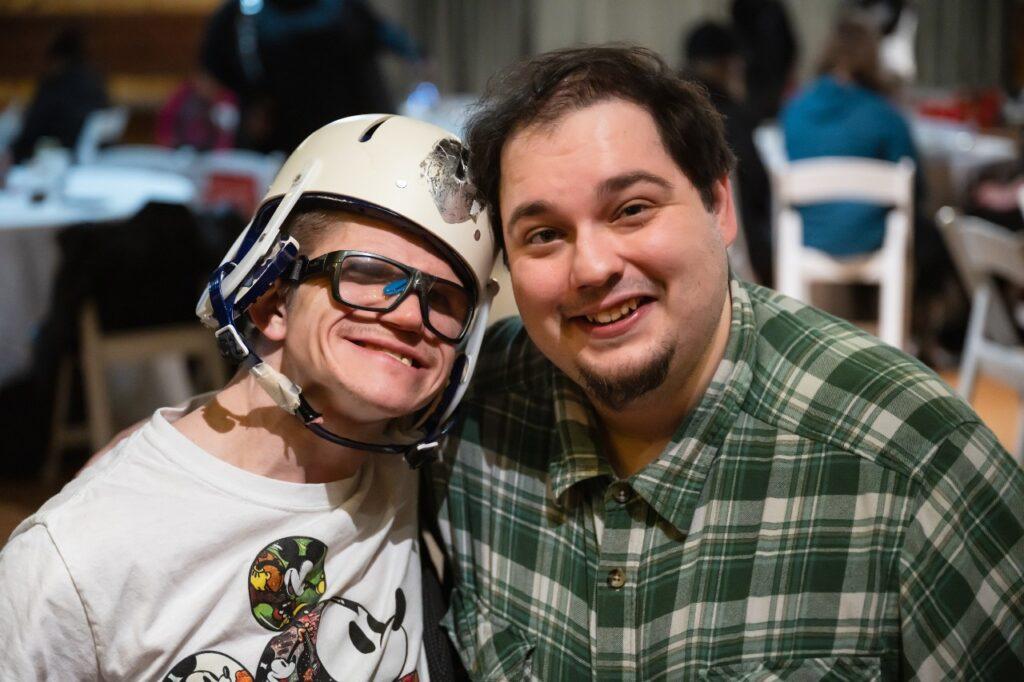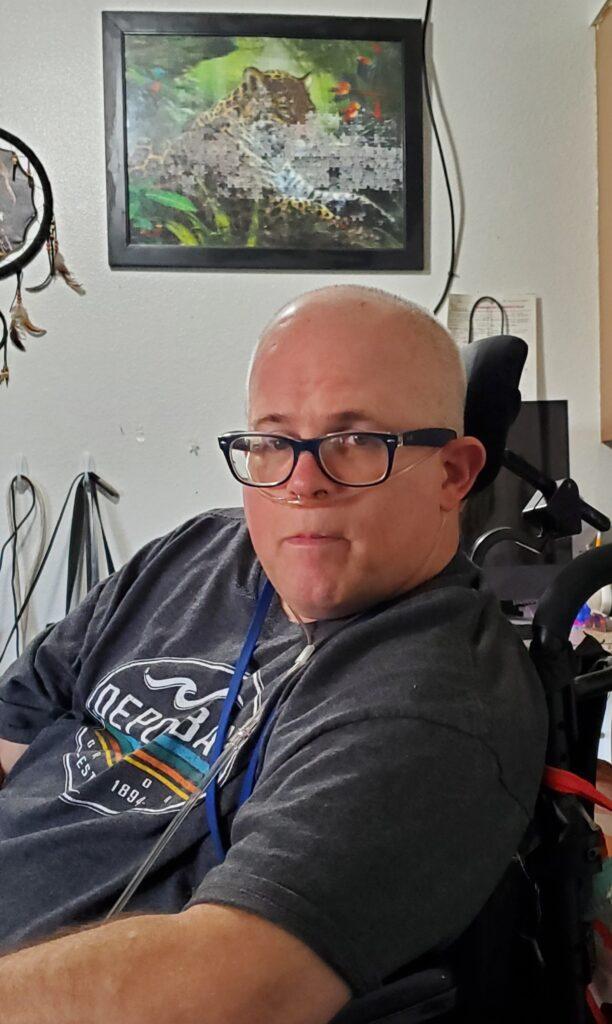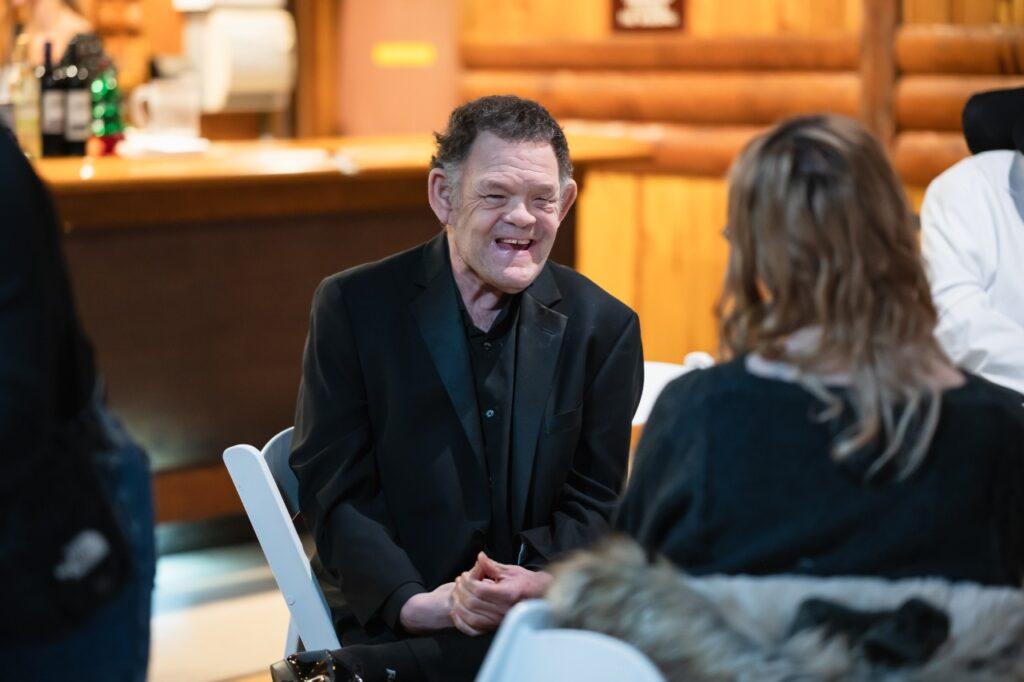Explore the ALSO Children’s Homes Wishlist and help fill the season with joy for the children supported by ALSO.
Explore the ALSO Children’s Homes Wishlist and help fill the season with joy for the children supported by ALSO.

Remember when you bought that expensive year-long gym membership and used it for two months? Or that expensive toy, gadget, or outfit that spent most of the time in your toybox, drawer, or closet? Have you ever overeaten and regretted it? Or stayed out late and kicked yourself in the morning? Dignity of risk means learning from our experiences, and even (or especially) our mistakes. But people who experience intellectual and developmental disabilities (I/DD) are often “kept safe” from making choices, effectively denying them their right to autonomy. “There’s this idea that we need to protect people with disabilities,” says ALSO’s CEO Brett Turner, “because they’re a very vulnerable population (which we don’t disagree with), but this kind of inherent protection from family members and the system itself sometime results in people with I/DD not having the dignity of risk that we all get to have.”
This can be especially true with decisions concerning financial or bodily autonomy. Darrin Barham ALSO’s Supported Living Director asserts that it’s not unusual for people supported by ALSO to disagree with their families about how to spend money. “We always have to go back to, ‘This is their decision, and we need to support them, even if you’re not on board,’” he says. “We all make decisions in our life that we regret. The people we support need to learn that same lesson.”

Luckily, at ALSO decisions are not made in a vacuum. Part of supporting people with I/DD is facilitating informed decision-making. Sometimes this support can be a casual conversation. “I get to make my own decisions about what I eat,” says Glenda, one of the individuals ALSO supports. “I am independent, so staff doesn’t say stuff like, ‘You can’t have that,’ but they do try to let me know it might not be the healthiest.”
Sometimes a structured and collaborative conversation can be more effective in facilitating autonomy and decision-making. “We talk openly as a group (that includes staff, family members and the person supported) and say, ‘Here are some pros and cons,” says Darrin. “The team concept really works wonders. When there’s more people involved there are different points of view…and it really is a great opportunity to get a true sense of what’s going on from every angle…That way you don’t walk away from a meeting feeling like somebody wasn’t heard.”
Ensuring communication is critical, especially when the person is unable to communicate with words. “Imagine going to a doctor’s office with no information about why you were there,” says Harry Norris, a Behavior Support Specialist at ALSO. “ If someone came at you with a needle without explaining why, what reaction would you have?” he states.
Harry often uses social stories to verbally and visually explain new situations. “I might use a narrative from the individual’s point of view, something along the lines of, ‘I’m going to the doctor today and we’re going to talk about my diagnosis of GERD. I need to tell them that it’s been bothering me and what my symptoms are, and I’d like to fix it so it doesn’t bother me.’” Social stories helps break down situations into easily digestible bites, and can always be expanded if the person is interested in learning more.
Bodily autonomy—the ability to make decisions about what to do with our bodies—is a human right, and one that “is too often denied to persons with disabilities, whether through harmful social norms or through sheer and unacceptable lack of access to quality, and confidential, health care,” according to the United Nations Population Fund. Jamie, an individual supported by ALSO, has first-hand knowledge of those social norms in healthcare. “They see the wheelchair first,” he says. “I talk slow, so they think I’m slow…They don’t take to time to listen to me.” His Direct Support Professional agrees. “Getting his primary care provider to give him time is really something,” states Harry. “It’s almost expected that it (disrespect by medical professionals) is going to happen,” says Harry, “so sometimes people won’t speak up for themselves.” It’s a problem that goes beyond self-advocacy, as the lack of information can lead to misdiagnoses or medication issues.
Knowledgeable caregivers can support autonomy in healthcare settings. “I do make my own decisions about my own healthcare,” says Glenda, “but I also have a staff that stays with me at the doctor’s, so I can ask them to repeat what the doctor’s saying or explain it in a way I can understand. Or if the doctor ‘s not understanding me because I have autism, I’ll have my staff help me get it so that the doctor understands me better.”
Though staff can provide support, it’s important that individuals exercise their right to bodily autonomy. “If an individual doesn’t take an active role in their healthcare,” says Harry, “there’s an increased chance of doctors dismissing their decisions or deciding what they want.” There can be times when a person experiences a significant decline in health, safety, or quality of life and they are unable to make a choice for themselves. At this point, ALSO would probably advocate for a healthcare representative to support the individual. “Ideally, we want to continue to support the person in their medical autonomy,” says Harry, “and restricting this should only be done as a last resort.”

Finances are another area where informed decision-making is critical. “When someone doesn’t really know a lot about their money or really understand the value of the dollar, that puts them at risk of being exploited by others,” Harry says. Sometimes, the exploitation is subtle. “All the time, people want me to buy things I don’t want to buy,” Jamie says, “I say, ‘Not today,’ or ‘I know it’s cheaper somewhere else.’”
The Consumer Financial Protection Bureau (CFPB) lists several attributes that put people at higher risk of identity theft, financial abuse, and financial exploitation, including:
And financial literacy doesn’t just guard against exploitation. It also helps individuals meet their goals and gives them greater confidence when making choices.
Financial literacy and empowerment start with a basic discussion about the concept of money. Harry suggests moving slowly, working with a small bit of information to avoid overwhelming the individual. For example, he might begin with counting money, and then, “I would talk about a preferred item and its cash value. If the person loves soda, we might discuss that we need $5.20 for two liters of soda (making it an “us” issue rather than leaving them to feel alone) …If they only have $4 but still want two liters of soda, I would reiterate the issue we have, trying to help them work through the process. If they are struggling, I might throw out ideas like, ‘What if we got a different brand of soda, or a different size of soda, or we buy one soda today and buy the next one when we get more money?’” Then, as Harry says, “rinse and repeat” over a period of time to help the individual learn.
Financial autonomy is important to Glenda as an indicator of her independence, but it has also given her the opportunity to grow, and she’s rightfully proud of that growth. “I make decisions about how I want to spend my money,” she says, “as long as I get my bills paid and my groceries for the month, and have enough to support my little kitty.” She’s quick to say she also has support. “ALSO is there to help me sometimes, to make sure I budgeted the right way so that hopefully I don’t make mistakes,” she states.
If you’d like ALSO to help build a life that respects and supports the right to autonomy for yourself or a family member, we’d love to talk with you, or take you on a tour. Contact us today at info@alsoweb.org or call us at (503) 489-6565.

Sign up for our newsletter to get our latest news, content, and job opportunities.
Help us ensure that everyone has the same opportunities in their home, workplace and community. Let’s make dreams!
